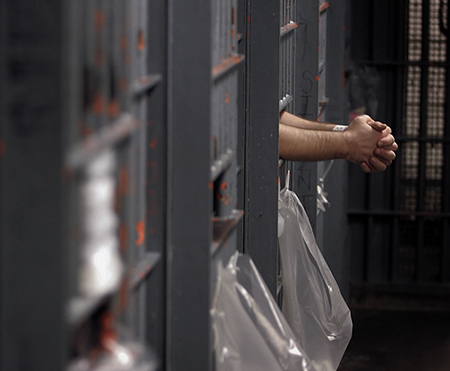Iowa’s Supreme Court upheld a state ban preventing ex-felons from casting a vote this November. The only exception to this ruling is if the governor restores their right to do so. This coming from a state that convicted cancer patients for marijuana felonies.
In 2014, growing equipment along with 71 marijuana plants were discovered by police on Benton Mackenzie’s property in Long Grove, Iowa.
The 48-year-old cancer patient, who died in January 2015 while appealing his conviction, faced numerous marijuana charges. Mackenzie pleaded guilty to manufacturing marijuana, a class D felony.
If he were alive today, Iowa’s decision to uphold a felon voting ban would mean Mackenzie could not vote. Iowa remains one of just three states with lifetime voting bans for ex-felons.
“Benton was making oil to treat his cancer,” Carl Olsen of Iowa NORML, and former Iowa felon for marijuana cultivation in 1992, told MERRY JANE. “He had to make a lot of it. He wasn’t smoking it. He was not healthy enough to stay as careful as a healthy person might be able to. He figured, if they wanted to come after him – well, he had bigger concerns.”
The Iowa felon voting case decided Thursday, and brought by the ACLU, was part of a nationwide movement to reinstate voting for former felons, an inordinate amount of whom are persons of color often arrested for marijuana related crimes. Approximately six million Americans are unable to vote due to such bans. In Iowa alone, there are tens of thousands of former felons who still cannot vote.
The decision confirms that all felonies remain synonymous with “infamous crimes” – in line with a law enacted in 1994 by the legislature. According to the state’s constitution, adopted by popular vote in 1857, those convicted of infamous crimes are permanently disenfranchised under the state’s constitution.
Olsen critiqued: “But how could the authors of the state constitution know that an infamous crime would in the future encompass non-violent crimes like those involving marijuana?”
Chief Justice Martin Cady stated of yesterday’s decision in Griffin v Pate: “…The facts and evidence of this case are insufficient to justify judicial recognition of a different meaning. This conclusion is not to say the infamous-crime provision of our constitution would not accommodate a different meaning in the future. A different meaning, however, is not for us to determine in this case. A new definition will be up to the future evolution of our understanding of voter disqualification as a society, revealed through the voices of our democracy."
Convicted in 2008 of a cocaine delivery offense, plaintiff Kelli Griffin had been told once her probation was through she could vote, which was the case at the time. However, a 2011 change to the law by Republican Gov. Terry Branstad meant former felons would need to apply with the governor to vote. Roughly 56,500 Iowans can’t vote due to felony convictions.
Griffin, unaware of the new law, took her kids to vote with her so they could learn about Democracy. She was later charged with perjury for voting illegally and acquitted at trial in 2014.
Olsen petitioned to get his right to vote. He had to write a letter to the governor and send it to the parole board, he said. The process took a year.
“People like me who never hurt anybody get convicted of a made up crime and lose our right to vote,” Olsen said. “So, if you’re advocating to do away with these poor marijuana laws, you’re not allowed to participate. But, if you never violated the law, how would you know marijuana was something worth fighting for?”











